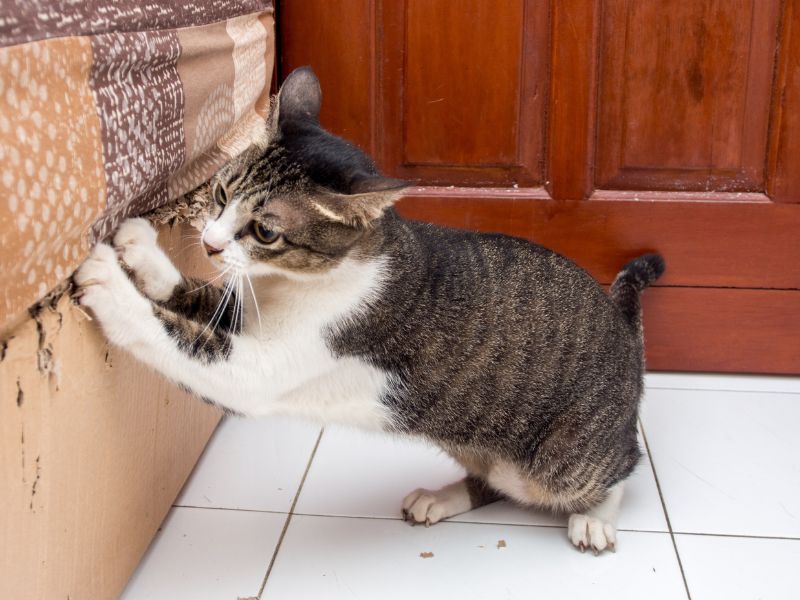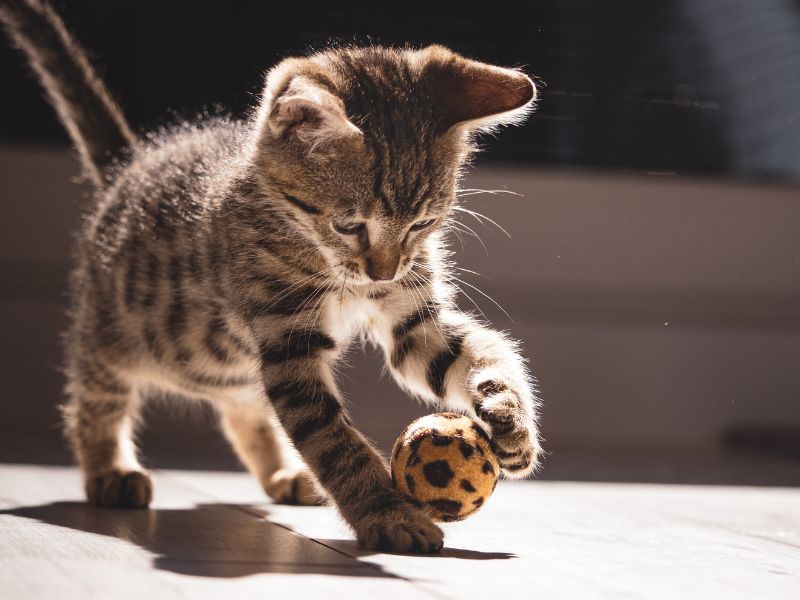If you’re a cat parent, you know that our feline friends can be incredibly sensitive creatures. They have their own unique personalities, preferences, and quirks that make them such delightful companions. However, just like humans, cats can also experience stress and anxiety. Whether it’s due to changes in their environment, separation anxiety, or other triggers, it’s important to understand how to help your cat cope with these emotions. In this article, we’ll explore some of the common signs of stress and anxiety in cats, as well as effective strategies you can use to support your furry friend’s emotional well-being. From creating a calming environment to incorporating play and exercise into their daily routine, we’ll cover everything you need to know to help your cat live a happy and healthy life. So, let’s get started!
Understanding Feline Stress and Anxiety
Cats have a reputation for being independent and self-sufficient creatures, but they are also highly sensitive to changes in their environment and routine. Stress and anxiety can have a significant impact on a cat’s physical and emotional well-being, leading to a range of health problems if left untreated. Understanding the root causes of your cat’s stress and anxiety is the first step in helping them cope with these emotions.
Some common causes of stress and anxiety in cats include changes in their environment, such as moving to a new home or having new pets introduced into the household. Separation anxiety can also be a significant trigger for cats, especially if they are left alone for long periods of time. Other potential sources of stress and anxiety include loud noises, unfamiliar people or animals, and changes to their daily routine.
It’s important to note that stress and anxiety in cats can manifest in a variety of ways, depending on the individual cat’s personality and temperament. Some cats may become more withdrawn and less active, while others may become more vocal or display destructive behavior. Understanding the signs of stress and anxiety in your cat is essential to providing them with the care and support they need.

Common Causes of Stress and Anxiety in Cats
As we mentioned earlier, there are several common causes of stress and anxiety in cats. One of the most significant triggers is changes in their environment. Cats are creatures of habit and thrive on routine, so any changes to their living situation can be stressful. For example, if you move to a new home or introduce a new pet into the household, your cat may become anxious or even exhibit signs of aggression.
Another common cause of stress and anxiety in cats is separation anxiety. If your cat is used to having you around all the time and suddenly finds themselves alone for long periods, they may become stressed and anxious. This can lead to destructive behavior, excessive grooming, and other health problems.
Other potential sources of stress and anxiety in cats include loud noises, unfamiliar people or animals, and changes to their daily routine. For example, if you suddenly start working different hours or stop playing with your cat as much as usual, they may become anxious or depressed. It’s important to be aware of these triggers and take steps to minimize their impact on your cat’s emotional well-being.
Signs of Stress and Anxiety in Cats
Cats can’t tell us when they’re feeling stressed or anxious, so it’s up to us to be aware of the signs. Some common signs of stress and anxiety in cats include:
- Hiding or spending more time alone
- Increased vocalization, such as meowing or yowling
- Destructive behavior, such as scratching furniture or walls
- Excessive grooming or licking, which can lead to hair loss and skin problems
- Changes in appetite or eating habits
- Avoiding eye contact or acting out of character
- Urinating or defecating outside the litter box
If you notice any of these signs in your cat, it’s important to take action to reduce their stress and anxiety levels.
How to Reduce Stress and Anxiety in Cats
There are several effective strategies you can use to help your cat cope with stress and anxiety. One of the most important things you can do is create a calm and comfortable environment for your cat. This can include providing them with a cozy bed, plenty of toys and scratching posts, and a designated space for them to retreat to when they’re feeling stressed.
It’s also important to establish a routine for your cat and stick to it as much as possible. This can help them feel more secure and less anxious. You should also make sure your cat has plenty of opportunities to play and exercise, as physical activity can help reduce stress and anxiety levels.
Play therapy is another effective way to help cats cope with stress and anxiety. This can include interactive toys, such as puzzle feeders, as well as games that encourage your cat to run, jump, and climb. You can also consider incorporating calming scents, such as lavender or chamomile, into your cat’s environment to help them relax.
Natural remedies, such as herbal supplements and pheromone sprays, can also be effective at reducing stress and anxiety in cats. However, it’s important to talk to your veterinarian before using any new products to ensure they’re safe for your cat.
In some cases, professional help may be necessary to help your cat cope with stress and anxiety. This can include behavioral therapy, medication, or a combination of both. Your veterinarian can help you determine the best course of action for your furry friend.

See Also: Why Senior Cats Make the Perfect Companion
And: Why Does My Cat from Scratch My Furniture and Carpets?
Tips for Preventing Cat Stress and Anxiety in the Future
Preventing stress and anxiety in cats is often easier than treating it. Some tips for preventing stress and anxiety in cats include:
- Maintaining a consistent routine for your cat
- Providing plenty of opportunities for play and exercise
- Creating a calm and comfortable environment for your cat
- Gradually introducing new pets or people into the household
- Minimizing exposure to loud noises and other potential stress triggers
By following these tips, you can help your cat live a happy and stress-free life.
Conclusion
Cats are wonderful companions, but they are also highly sensitive creatures that can experience stress and anxiety just like humans. Understanding the signs of stress and anxiety in cats and taking steps to reduce their impact can help your furry friend live a happy and healthy life. From creating a calm and comfortable environment to incorporating play therapy and natural remedies, there are many effective strategies you can use to support your cat’s emotional well-being. By working closely with your veterinarian and being mindful of your cat’s needs, you can help them cope with stress and anxiety and enjoy a long and happy life by your side.

